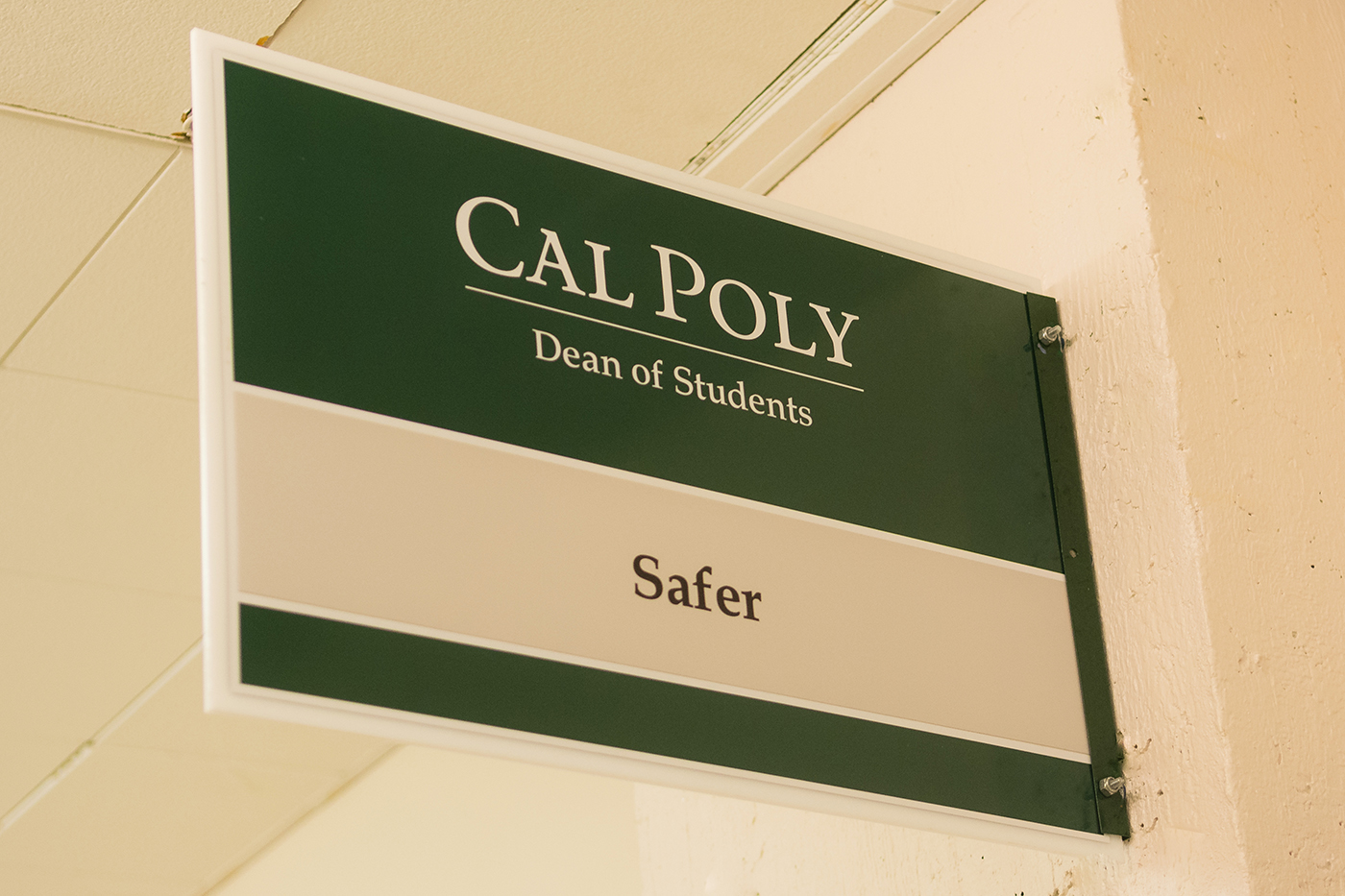Safer — Cal Poly’s on-campus, confidential advocacy, education and support program concerning sexual assault, sexual misconduct, dating violence, domestic violence and stalking — merged with the Health Center just over a year ago. And now, Safer advocates say that the number of students who return to use their services more than once is up from previous years.
The move was prompted by low numbers of students returning to Safer for their services, originally located in the University Union (UU). The social atmosphere surrounding Safer did not allow for high levels of comfortability, which lowered interest and involvement from the students, according to the Assistant Director of Wellbeing Kara Samaniego.
The switch was made possible through a three-year grant from the Department of Justice Office on Violence Against Women (OVW). Cal Poly received a $300,000 grant “to inspire holistic and systemic culture change on our campus surrounding sexual assault, intimate partner violence and stalking,” Samaniego wrote in an email to Mustang News.
The grant also provided the necessary funding to hire two more people to work at Safer – an Assistant Director of Wellbeing and a Prevention Specialist Assistant.
The Assistant Director of Wellbeing is responsible for overseeing the campus’ sexual misconduct advocacy and prevention program, as well as general campus wellbeing strategic initiatives, according to Samaniego. On the other hand, the Prevention Specialist Assistant is responsible for leading and coordinating prevention education, outreach and early intervention efforts related to gender-based violence in a higher education setting, according to Cal Poly Human Resources.
Two additional Campus Advocate positions will also be entering the recruitment phase soon, according to Samaniego. These new positions are important as Safer continues to grow, she added.
“Safer has been able to provide trainings, perform outreach and work more collaboratively with campus and community partners,” Samaniego said. “[The grant also] allowed us to separate the work of prevention from crisis support and advocacy.”
Samaniego said she still sees the move as a proactive approach to maintaining confidentiality and increasing student interaction.
“I believe the move allowed Safer to explore new approaches to gender- and power-based violence prevention through more of a public health lens,” Samaniego wrote. “This is critical to ensure that those who are seeking our confidential services with our Campus Advocate can do so in the same building as other campus health and counseling services, while also allowing us to focus more intentionally on prevention with our new Prevention Specialist position.”
Student retention has increased through Safer’s major annual event Take Back the Night, an international event with the mission to end sexual violence and domestic violence. April 2019 was their largest Take Back the Night event yet, according to Samaniego.
The event includes two marches through Cal Poly’s campus and downtown San Luis Obispo. Their next one is planned to assemble in April 2020.
However, Samaniego said the transition is still difficult given Safer’s need for space.
“A struggle that is felt here, and across campus, continues to be space and creating the capacity for necessary growth in the future,” Samaniego said.
Updates to the actual facility include a divider from public view for constant privacy and two office spaces for counseling services, as compared to the one visible office in the UU.
“Prevention and shifting campus culture takes time and the commitment of all students, faculty and staff,” Samaniego wrote. “I believe these changes will allow our campus to continue the forward progress we have seen over the last year.”

